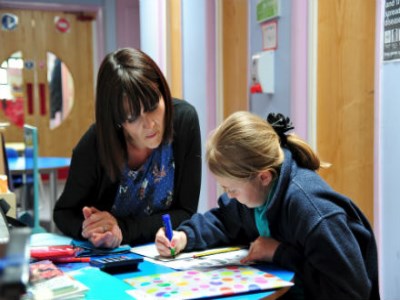
Teaching as a profession is very complex. It not only requires sound academic background and the ability to promote the development of knowledge and skills in others but also requires an awareness and development of core “people” skills.
From 2018 onwards, the national requirements for selection into all teaching qualifications will require some evaluation of non-academic criteria, which is in contrast to most current entry requirements to get into universities.
These tend to focus on academic achievement or pathways that demonstrate capabilities. So how will providers of initial teaching qualifications evaluate these skills?
As one solution, the Flinders University School of Education is leading a project to create a non-academic assessment – Situational Judgement Tests (SJT) – which will capture the complexities of the day to day teaching environment and target non-academic decisions that teachers make as part of their job.
SJTs are a method of online assessment of non-academic attributes. They assess how people make judgements about possible courses of action and respond to specific, real-life situations.
The School of Education at Flinders University has been able to apply the research from previous developments in multiple disciplines to establish the processes for developing SJTs from the outset.
SJTs have been used for selection into medicine and other health professional fields, but so far the tests have not been used for selection into Initial Teacher Education (ITE) qualifications.
In late 2016, the Flinders SJT research team, led by the Dean of the Flinders School of Education, Professor Lindsey Conner, won a Flinders’ Teaching and Learning Innovation Grant to implement a trial an SJT tool specifically for ITE.
The initiative to explore the delivery of SJT assessments then escalated. State and national directives that all Australian teachers and education providers must embed a selection process for non-academic criteria into their entry requirements by the end of 2017.
Recognising that schools and the profession would need to be ready for the pending non-academic assessment requirements, the Flinders SJT team sought connections with collaborators at the University of York (United Kingdom) and the University of NSW to consult on existing SJT projects and strengthen potential developments.
This has allowed the Flinders team to be well advanced and ready for the approaching changes to entry criteria.
Key to the success of SJTs, in any practice, is input from current professionals who are experts in their field of specialty, as the scoring for SJTs is based on a comparison of the judgments of candidates and those expressed by the subject matter experts.
From the SJT project’s inception, expert teachers from diverse educational sectors were invited to engage in the project by developing and refining the SJT scenarios. The School also expanded its partnerships with School and Early Childhood centres to ensure input from current teachers
Childhood centres to ensure input from current teachers. The Dean has been actively encouraging and generating strong engagement with educational providers.
The Dean said the University’s new formal partnerships with schools and early childhood centres enables such collaborations between staff from multiple disciplines at Flinders and teachers and leaders in education.
With the SJT Project now well underway, the Flinders SJT team has identified target domains such as Communication, Relationship Skills, Empathy, Resilience, Ethical Reasoning and Integrity as potential key areas for assessment, all of which are essential skills to be an effective teacher.
The Flinders SJT team are working with teachers to design about 30 scenarios, each with six possible answers which will be ranked and scored to check their validity.
Voluntary second year students from Flinders’ Early Childhood, Primary and Secondary cohorts will be invited to trial the first SJTs via an online assessment tool.
The Flinders SJT team will then review the collated SJT test results to determine if there is a correlation between SJT test outcomes and what the tested students achieve in their Professional Experience placements.
In this way, the SJT results both support the ongoing professional development of ITE students via their Work Integrated Learning and reinforce their potential success as future teachers.
The positive impact of progressive SJTs is that students have a tool to score, monitor and tangibly demonstrate the development of their non-academic attributes.
Students able to see their non-academic success quantified are more likely to identify areas they need to work on and therefore succeed in their Professional placements, complete their courses and gain employment.
Involving current teachers and discipline experts in the development of SJT questions has both ensured the domains and scenarios reflect the contemporary classroom or education centre environment and encouraged project contributors to consider how they would act in each situation.
This project has generated interest and engagement amongst schools partnered with the Flinders School of Education, as well as Academic researchers keen to see the results of the first round of tests at the end of 2017.
SJTs provide a give a better overall picture of a candidate's aptitude for their chosen area of expertise and an opportunity to review how they might respond to real life situations.
This is an inspiring development for Flinders, the University and Education; as the Dean notes: “Even more exciting is how we can develop on-going versions to help students monitor their progress on these essential professional attributes! There is the potential that if we can refine this, other professions could use a similar process.”
Through teaching, research and community engagement, the Flinders University School of Education aims to be at the forefront of educational change.


